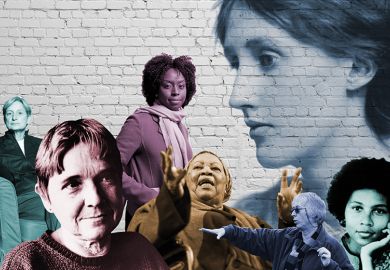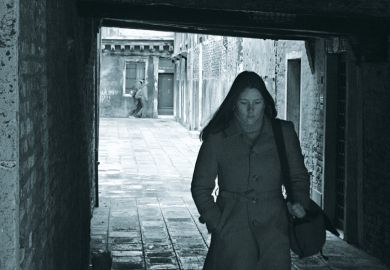”You know, Sir, I have no English prejudices. Mankind I consider as one large family, thrown over the world by chance, and dispersed about at random; and certain qualities of the soul make us find out such relations, as are most congenial to us in every country.”
Lady Elizabeth Craven, an aristocratic society beauty with a reputation for sexual scandal, poses here a question about what the traveller is actually doing when she writes about her encounters with other cultures. Is the point to find similarity, or difference? In this case, Craven’s proclamation of her lack of “English prejudices” and her communion with other nations badges her as an elite cosmopolitan, unshackled by the crude xenophobia of her countrymen. In fact, lying behind Craven’s sense of the world as “one large family” was a more topical rebuttal of the moral disapproval that she had experienced in Britain in the previous decade.
Self-construction and description are inextricably linked, and the role of travel writing as a commentary on contemporary political and cultural debates in Britain is a key theme in Katrina O’Loughlin’s book. Travel writing did more than describe new places: it enabled female writers to talk about themselves, their values, their emotions, their civic engagement and their responses to contemporary affairs.
O’Loughlin’s account begins with the hugely influential Turkish Embassy Letters of Lady Mary Wortley Montagu, which detail her journey down through Europe to Constantinople. Like other women featured in the narrative, Montagu’s gender inflects and authorises her account, and her female body is the lens through which experience is filtered. And so we have her famous description of herself, imprisoned in her stays, amid a group of bathing Turkish women in the hammam. The pivotal tension between sameness and difference at the heart of the travel narrative, at the heart of the dialogue between East and West, is here framed as a question of underwear or no underwear. Who is the more liberated woman?
For Anna Maria Falconbridge, writing in 1794 of her experience of the “middle passage” of Atlantic slavery, female identity is the explanation for her compulsion to look at what she does not want to see. From her window she espies a group of two or three hundred chained slaves feeding in circles, from a trough in a shipyard in Bunce Island, in the Sierra Leone river: “Offended modesty rebuked me with a blush for not hurrying my eyes from such disgusting scenes; but whether fascinated by female curiosity or whatever else, I could not withdraw myself for several minutes.”
One of the virtues of Women, Writing, and Travel in the Eighteenth Century is that it uses anecdotes such as this one to tease apart the competing impulses within the travel account: in this case, revulsion, sympathy and voyeurism are inseparable. We also get a sense of some very different voices across the century: Montagu, in Cologne, is haughtily irreverent as she plots to melt down a reliquary of St Ursula into jewellery and dressing table ornaments; but elsewhere, we have the “sturdy literalism” of Elizabeth Justice – a governess whose faithful obligation to the ordinariness of meals, of missed opportunities, of the weather – reminds us of the range of narrative experience available. O’Loughlin represents individual testimonies as the products of a range of historical and individual circumstances and, in doing so, prompts us to ask what we really see when we see.
Abigail Williams is professor of 18th-century studies at the University of Oxford and the author of The Social Life of Books: Reading Together in the Eighteenth-Century Home (2018).
Women, Writing, and Travel in the Eighteenth Century
By Katrina O’Loughlin
Cambridge University Press
288pp, £75.00
ISBN 9781107088528
Published 14 June 2018
Register to continue
Why register?
- Registration is free and only takes a moment
- Once registered, you can read 3 articles a month
- Sign up for our newsletter
Subscribe
Or subscribe for unlimited access to:
- Unlimited access to news, views, insights & reviews
- Digital editions
- Digital access to THE’s university and college rankings analysis
Already registered or a current subscriber?







